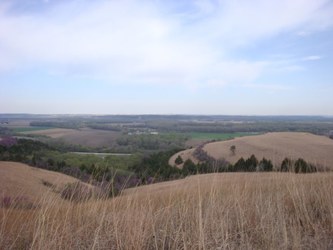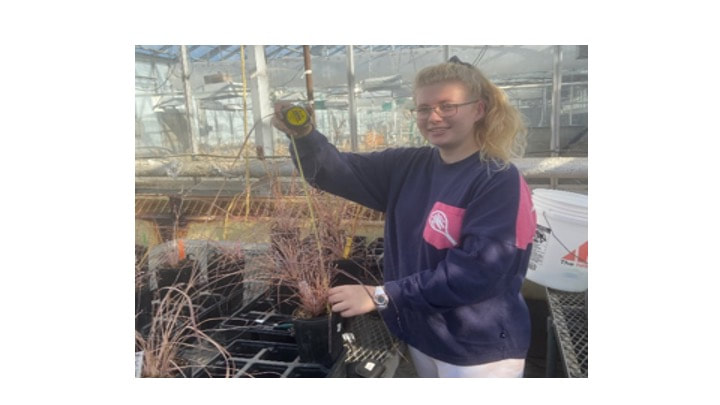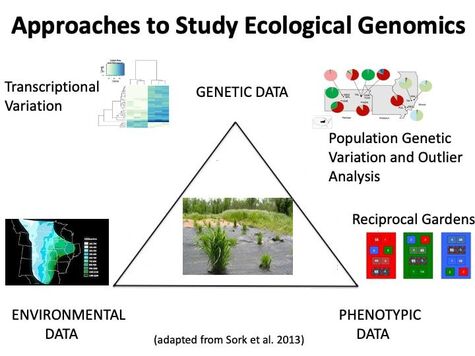|
Loretta Johnson
Division of Biology Ecological Genomics Institute Kansas State University 312 Ackert Hall Manhattan, Kansas 66506 Office: 785-532-6921 Email: [email protected] Skype: loretta.johnson.2011 |

Ecological Genomics-
RESEARCH OPPORTUNITIES!! The emerging field of Ecological Genomics seeks to understand the genetic mechanisms underlying responses of organisms to their natural environments. This is being achieved through the application ofgenomic approaches to identify and characterize genes with ecological and evolutionary relevance. By its very nature, ecological genomics is an interdisciplinary field, requiring a multidisciplinary approach that combines field studies with laboratory experiments with in ecologically relevant framework. Thus, while traditionally, ecological and laboratory-based genetic/genomic studies have occupied different areas of biological investigation, Ecological Genomics seeks to integrate these disciplines by using genomic approaches in an ecological context. Ecological Genomics refers to the use of any genome-enabled approach, whether aimed at discovering the ecological functions of single or multiple genes. We can define ecological genomics as an integrative field of study that seeks to understand the genetic mechanisms underlying responses of organisms to their natural environment. These responses include modifications of biochemical, physiological, morphological, or behavioral traits of adaptive significance. Ecological Genomics in the Johnson Lab focuses on the genetic, molecular and ecological mechanisms involved in adaptation of the prairie grass big bluestem, Andropogon geradii, to diverse and changing climates of the Great Plains. The Johnson Lab's ultimate goal is to discover how the ecologically dominant big bluestem tall grass can adjust to current sharp precipitation gradients and make predictions about its ability to respond to future and increasingly novel climates. This work also has conservation implications as it will help to inform land managers about the importance of using local ecotypes in prairie restorations and the response of those ecotypes to predicted climate change. |
Latest News

Galliart Accepted into Science Communication Fellowship at Sunset Zoo

Galliart Awarded NSF Graduate Fellowship and Bancroft Scholarship

Alsdurf and Galliart are K-State GRAD Forum Winners,
KAS Grants Paige Wiebe recipient of KAS, BSA, ASPB research grants

Galliart Winner Distinguished
Professor Award |





